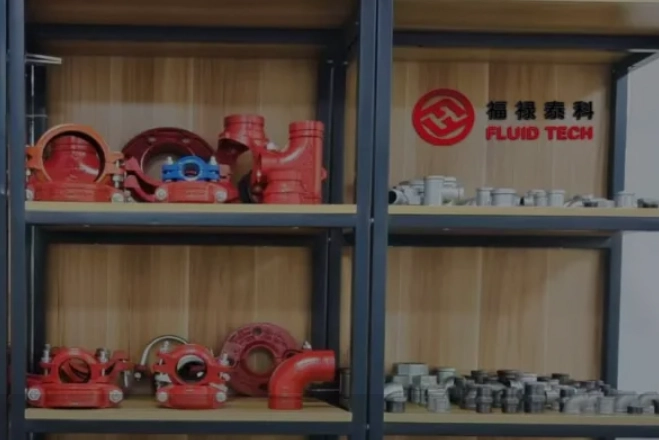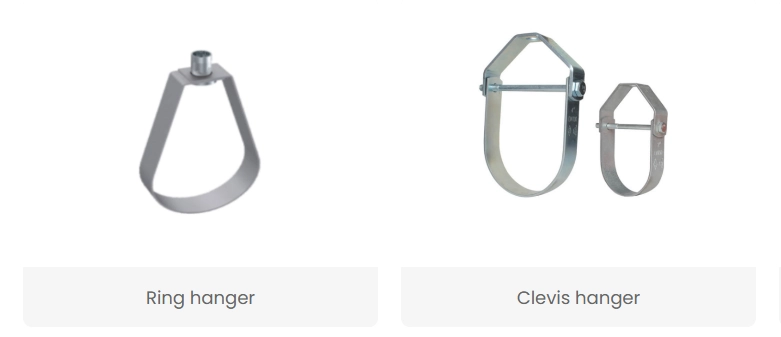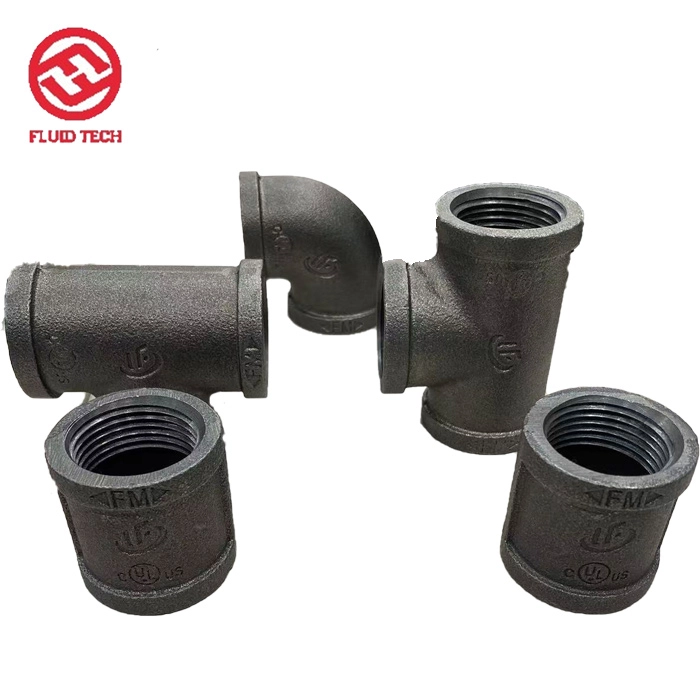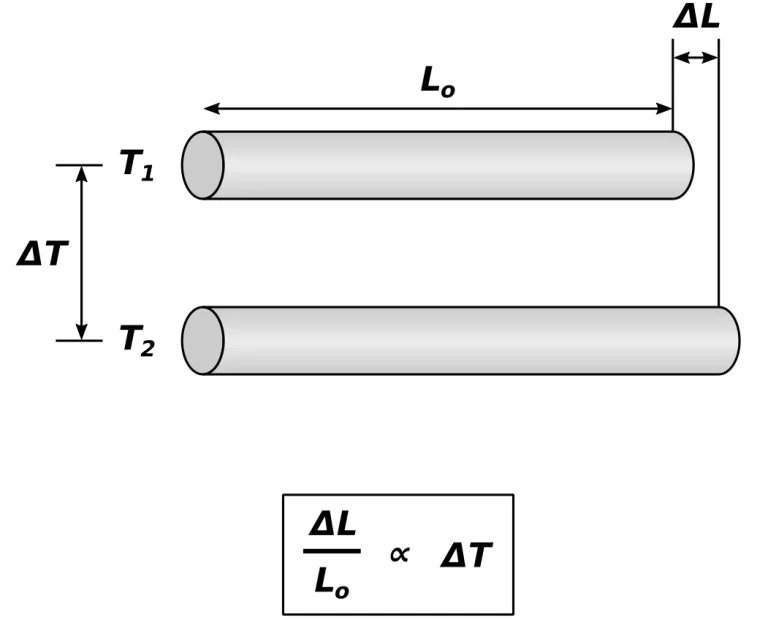Sprinkler systems are important for fire safety. Pipe hangers play a big part in keeping them steady. Good hangers make sure pipes stay in place. This stops leaks or problems during emergencies. This guide talks about pipe hanger rules, why they matter, materials used, installation tips, and why FLUID ทีECH is a trusted company for safe sprinkler setups.
What Are the Key Standards Governing Pipe Hangers in Sprinkler Systems?
Pipe hangers need to follow strict rules to keep sprinkler systems safe. These rules come from groups that make guidelines for fire protection. They ensure hangers hold pipes well, even in tough situations like earthquakes. Knowing these rules helps you choose the right hangers for your needs.
Overview of Industry Standards and Guidelines
Several groups set rules for pipe hangers in sprinkler systems. The National Fire Protection Association, or NFPA, has a rule called NFPA 13. It explains how to install sprinkler systems. It says hangers must hold pipes without bending or breaking. Another group, Factory Mutual, or FM, tests hangers for strength and safety. Underwriters Laboratories, or UL, also checks hangers to make sure they’re good quality. These rules keep systems dependable.
For example, NFPA 13 says hangers must be placed right based on pipe size and material. They need to support the weight of water-filled pipes. Following these rules makes systems work well. You can find items that meet these standards, like the ring hanger from FLUID TECH. It’s built for strong pipe support.
The Role of Compliance in Ensuring Safety
Following these rules isn’t just about obeying them. It’s about keeping people safe. Good hangers stop pipes from falling or leaking during a fire. If a hanger breaks, the sprinkler system might not work. This puts people in danger. Following rules also helps buildings pass safety checks. This avoids expensive repairs. Companies like FLUID TECH make sure their hangers follow NFPA, FM, and UL rules. You can trust their items for safety.
Why Are Proper Pipe Hangers Essential for Sprinkler System Safety?
Pipe hangers are very important for keeping sprinkler systems working. They hold pipes in place, even when buildings move or pipes carry heavy water. Without strong hangers, systems can fail. This leads to big problems. Let’s look at why they’re needed and what happens if they’re not set up right.
The Impact of Pipe Hangers on Structural Integrity
Hangers keep pipes attached to ceilings or walls. This makes the system strong. They stop pipes from moving or sagging. Moving pipes can cause leaks or breaks. For example, FLUID TECH’s clevis hanger holds heavy pipes securely. Good hangers also help during earthquakes. They work with seismic bracing to keep pipes steady. This protects the building. It also ensures the sprinkler system works when needed.
How Improper Installation Can Lead to Failures
If hangers are put in badly, pipes can come loose. This might cause leaks. It could also stop water from flowing during a fire. Common problems include using weak hangers or placing them too far apart. These mistakes make pipes sag or break. This leads to system failures. Proper setup with certified items from topfirefighting.com avoids these issues. It keeps systems dependable.
How Do Pipe Hanger Materials and Designs Affect Performance?
The materials and shapes of pipe hangers change how well they work. Picking the right ones makes your sprinkler system last longer and work better. Let’s talk about common materials and design features that make hangers strong and useful.
Common Materials Used in Pipe Hangers
Steel, Stainless Steel, and Other Alloys
Hangers are made from tough materials to hold heavy pipes. Steel is cheap and strong. It handles big loads well. It’s great for most buildings. But it might rust without a coating. Stainless steel doesn’t rust easily. It’s perfect for wet or humid places. It lasts longer but costs more. Some hangers use alloys like ductile iron. These are extra strong for tough places, like big factories. FLUID TECH uses these materials in their hangers. Their items, like ring hangers, are built to last and support sprinkler systems well.
Design Features That Enhance Durability and Efficiency
Hanger designs also matter a lot. Some have rubber linings to protect pipes from scratches. This reduces wear. Adjustable hangers, like clevis hangers, fit different pipe sizes. They make setup easier. Some hangers have swivel parts. These allow slight movement to reduce stress on pipes. Such designs improve how long the system lasts. They also make it work better. FLUID TECH’s hangers have these features. This makes them a great choice for dependable setups.
What Are the Installation Best Practices for Pipe Hangers in Sprinkler Systems?
Setting up pipe hangers the right way is key to a safe sprinkler system. Good placement and avoiding mistakes ensure pipes stay secure. Here are some tips to do it right.
Proper Placement and Spacing of Pipe Hangers
Hangers need careful placement and spacing to hold pipes well. NFPA 13 suggests putting hangers every 12 feet for steel pipes. Plastic pipes need them closer, like every 8 feet. Place hangers near pipe joints. This reduces stress. Use strong anchors to attach hangers to ceilings or walls. Checking building plans helps get placement right. FLUID TECH’s items, like clevis hangers, are designed for easy and correct setup.
Common Mistakes to Avoid During Installation
Mistakes during setup can cause big issues. Using hangers that don’t fit the pipe can make them slip or break. Placing hangers too far apart causes pipes to sag. Using weak bolts or screws makes hangers fail under heavy loads. Not following NFPA or local rules can lead to failed safety checks. Certified hangers from companies like FLUID TECH help avoid these problems. Their items are made to meet safety rules and make setup simple.
Introducing FLUID TECH: A Trusted Pipe Hanger Supplier
FLUID TECH is a top name in fire protection. They’re known for great pipe hangers and fittings. Based in China, they offer many items, from ring hangers to seismic bracing. All their products meet global rules like NFPA and UL. They focus on quality and fair prices. This makes them a favorite for sprinkler system needs. With years of experience, FLUID TECH provides dependable items for safe setups. For more details, visit their contact page.
How Does FLUID TECH Stand Out as a Reliable Pipe Hanger Supplier?
FLUID TECH is a great choice for sprinkler system hangers because of their quality and variety. Let’s see why buyers around the world trust them.
Commitment to Quality and Compliance with Standards
FLUID TECH ensures their hangers meet tough safety rules. They follow NFPA 13, FM, and UL guidelines. This makes their products safe and dependable. Their hangers go through strict tests. They can handle heavy pipes and tough conditions. This focus on quality gives buyers peace of mind for their sprinkler systems.
Product Range Tailored to Meet Diverse Needs
FLUID TECH offers many kinds of hangers for different projects. They have ring hangers, which are great for light pipes and easy to set up. Their clevis hangers work well for heavy pipes. They have adjustable designs. They also offer seismic bracing for areas with earthquakes. These keep pipes secure. This variety helps buyers find the right hanger for any sprinkler system, from small buildings to big factories.
Conclusion
Pipe hangers are very important for safe and effective sprinkler systems. Following rules like NFPA 13 keeps systems dependable. Choosing strong materials and setting them up right makes systems work when needed most. FLUID TECH’s trustworthy hangers, available at topfirefighting.com, make it easy to meet safety rules. They help build strong systems. Contact them today to find the best hangers for your needs.
FAQs About Pipe Hanger Standards for Sprinkler Systems
What Is the Recommended Spacing Between Pipe Hangers?
NFPA 13 says to space hangers every 12 feet for steel pipes. Plastic pipes need them closer, like every 8 feet. This depends on pipe size and material. Good spacing stops pipes from sagging. It also keeps them steady. Always check local rules for specific guidelines.
Can I Use Any Material for Pipe Hangers in a Sprinkler System?
No, you should use materials like steel or stainless steel. They must meet NFPA and UL rules. These materials are strong and resist rust. Using unapproved materials can cause failures. FLUID TECH’s hangers, like the ring hanger, are made from approved materials.
How Often Should Pipe Hanger Installations Be Inspected?
Check hangers every year to ensure they’re secure. Look for rust or damage. After earthquakes or big building changes, check them right away. Regular checks keep your sprinkler system safe. They also make sure it follows safety rules.






